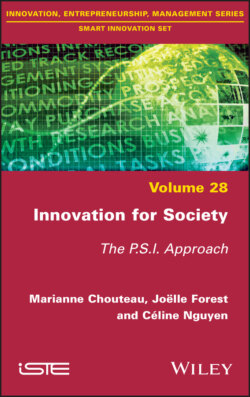Читать книгу Innovation for Society - Joëlle Forest - Страница 13
1.2.2.3. In search of lost meaning
ОглавлениеIt will be understood that, with the era of the consumer society, innovation has become dissociated from the idea of Progress, and thus from the reflection on the meaning of society that these innovations help to conceive. This dissociation was made all the easier by the fact that the massification of the production and consumption of innovations seemed to generate meaning, meaning that led to obscuring the eminently political question of which innovations we want for which society15.
Fortunately, since the end of the 20th Century, more and more voices have been raised to denounce this lack of meaning and plead for a new way forward. Indeed, do we need to own one or even two private cars per family when a car is stationary on average 92% of the time? Is it really necessary for American homes to have more televisions than there are people [USA 06]16?
To put it another way, our society does not expect innovation but progress; it does not always demand more innovation but wants well-being17. This idea is clearly perceptible in the study Innology, baromètre de l’innovation carried out by the Iligo Agency and the Reload Consulting and Training Firm in 2017. According to the latter, the ideal function of an innovation is the preservation of natural resources (63%) [ILI 17]18.
However, we must be wary of reducing the question of the meaning of innovation solely to the concerns arising from the advent of ecological awareness. It is a matter of acknowledging that the question of the meaning of innovation is much broader and concerns all innovations designed by humans. Because, as Tristan Harris, Google’s former “product philosopher”, deplores, in referring to the relationship we have with our smartphone, Silicon Valley companies push us to spend as much time as possible on their interfaces (what he calls “captology”), and paradoxically “millions of hours are just stolen from people’s lives and there is not a single public debate about it”19.
It should also be stressed that, while we can only welcome the dissemination of the precepts of sustainable development within our society20, it is nevertheless necessary to think about the meaning of the proposed directions. The production of solar, wind or any “renewable” energy requires the use of rare minerals found in electric car batteries, X-ray machines or smartphone chips, which, in addition to being rare, are non-renewable, so that an innovation deemed responsible in its purpose may have a catastrophic ecological footprint or be carried out under deplorable working conditions [PAV 18, p. 167]. Similarly, it is necessary to question the tendency of our societies to think about the environment through the prism of recycling.
Let there be no misunderstanding about the meaning of what we are saying; it is neither a question of minimizing the ecological emergency situation in which our societies find themselves, nor of denying the benefits of this reflection, as they are palpable as evidenced by the reduction in the use of materials per unit manufactured and in the consumption of energy when using products, the replacement of polluting raw materials, etc. More modestly, it is a question of collectively questioning the meaning of this direction21. Does it not lead to maintaining, if not reinforcing, the process of massification of the production and consumption of innovations mentioned above? As Romain Debref points out, based on the work of Nicholas Georgescu-Roegen:
Innovations that are considered environmental may well belong to, and reinforce, the era of Prometheus II rather than providing a transition to another form of development. Some projects based on a circular economic logic reflect this situation [DEB 16].
Similarly, we know that the sustainable urban factory does not benefit everyone equally, as it generally leads to higher land prices, which can contribute to socio-spatial segregation. Therefore, the P.S.I. approach invites us to make the sustainable city a political question: what do we decide to do with eco-neighborhoods or in order to reduce socio-spatial segregation?
In short, it must be stressed that the environmental question cannot replace the question of the meaning of innovation and that it is urgent to reintegrate the question of the political meaning of innovation (understood in the primary meaning of “what concerns the citizen”), which is too often hidden behind a purely technical conception of the problems [FOR 15, p. 15].
